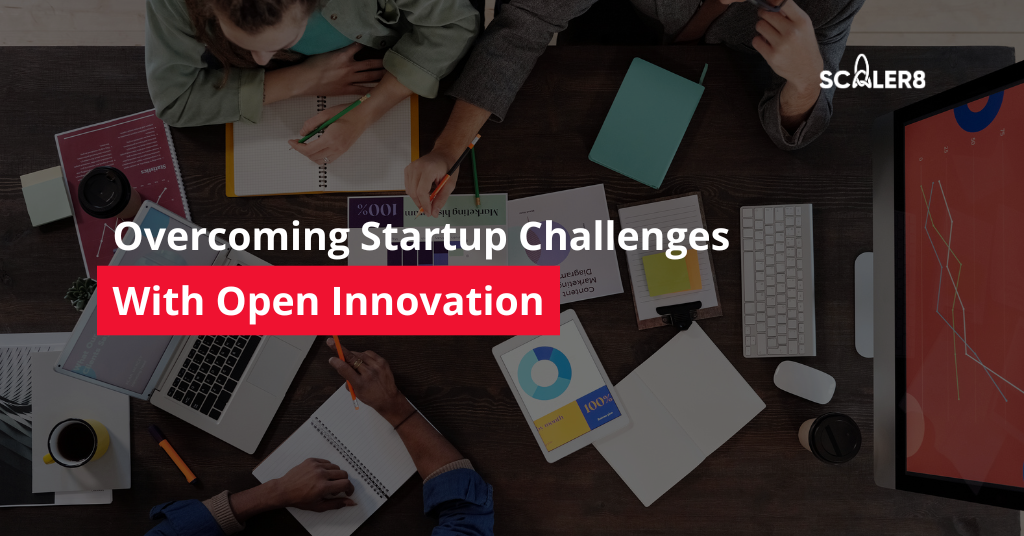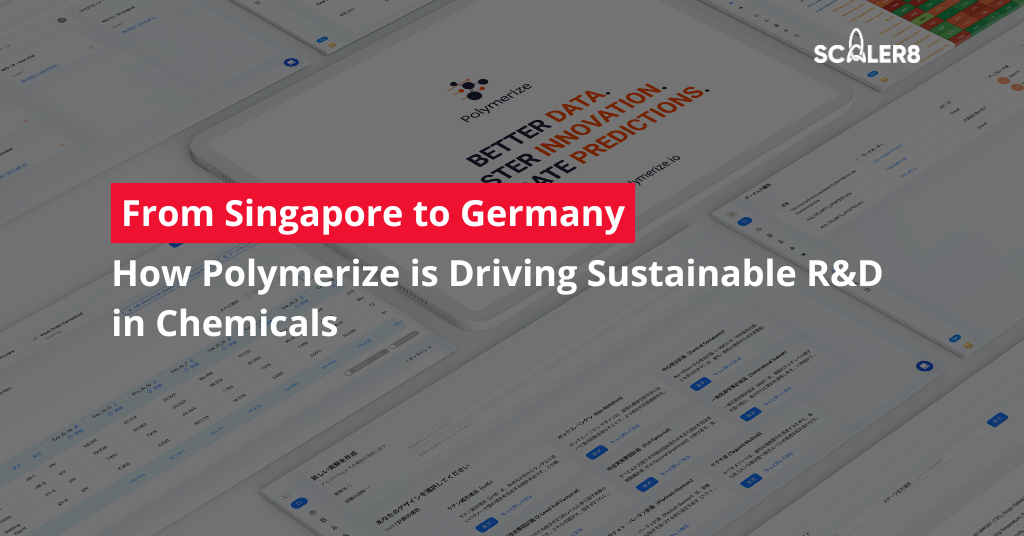As the largest domestic market in Europe and ranked the world’s 4th most innovative nation in Bloomberg’s 2021 Innovation Index, Germany stands as one of the most exciting markets for Asian fintech startups looking to find a foothold in the European market.
Boasting a US$3.8T GDP, and a deep domestic and international talent pool, Germany’s fintech ecosystem has gained international recognition, being fuelled by strong domestic and international investment, a robust regulatory environment, active government support, and a comparatively stable economy. Not to mention that it is now the second-largest European fintech hub after the United Kingdom (UK), and within the top five globally, next to the United States (U.S.), China, the UK, and India.
What does this mean for Asian startups?
Put simply, Germany is home to 83 million people, and hundreds of commercial banks, branches of foreign central banks, the European Central Bank, the German Central Bank (Bundesbank) and the German Stock Exchange (Deutsche Börse AG), making the country one of the most important financial centres in Europe and globally. Its diverse and decentralised banking landscape, coupled with a strong digital infrastructure, 88.1% internet penetration, and being the second biggest digital payments market in Europe, offers startups abundant market opportunities, an enviable base for business and foundation for growth, abundant with customers, clients, talent, investors and potential partners. And though Germany is a mature financial market, there is increasingly strong demand for digital transformation and innovation, making the country an attractive destination for Asian fintech startups looking to make an impact.
Germany’s regulatory landscape also makes the country an excellent test-bed for Asian startups keen to gain market access to Europe. Presenting a high-bar to market entry, startups will need to comply with relevant existing regulations and gain the necessary licenses to operate in Germany. Although this process may seem daunting, for Singapore startups, it should not be an uphill challenge, as both countries are highly regulated markets with similar requirements. Most other European markets are less demanding, so startups entering Europe via the German market, should be well-equipped for further business expansion across the continent. To help matters further, in recent years, Germany’s Federal Financial Supervisory Authority (BaFin) implemented a project group to focus on fintech, providing new entrants with support in view of fintech innovation.
One Singapore fintech startup keen to get in on the action is Finbots.AI. Finbots delivers innovative artificial intelligence (AI) solutions to help financial institutions enhance revenue growth, operational efficiencies, risk management and uncover new market opportunities. The company was established in Singapore in 2017 and is one of the innovative Singapore startups which took part in Scaler8’s market exploration programme.
“Germany is an exciting prospect for us, as it’s home to a booming financial market with a wide range of domestic and international banks who have an appetite for digital transformation and AI technologies,” said Sanjay Uppal, Founder and CEO, Finbots.AI.
“Germany is a mature financial market with many mid-tier and smaller banks, which normally wouldn’t have access to AI solutions, as much of what is currently available is expensive, and therefore only available to larger institutions. This is where we come in. For us, Germany is the first logical step as we venture into Europe, as it really is a test bed,” added Mr. Uppal.
Germany’s fintech landscape
Today, Germany is home to more than 900 fintech companies, spanning PropTech, financing, InsurTech, investment, blockchain, accounting and more, and that number is growing. Berlin is the nation’s fintech capital, housing the largest number of fintech startups (197), followed by Munich (84), Frankfurt (57), and Hamburg (51).
Star players in its fintech ecosystem include n26, the neobank which is one of the most highly valued fintechs worldwide, as well as insurance unicorn Wefox, savings marketplace Raisin, and Banking-as-a-Service Solarisbank. Some of the most well-funded German startups like tax platform TaxFix and digital wealth platform Moonfare have seen accelerated rgowth.
Key trends you need to know:
-
Locations: Berlin is Germany’s fintech capital, home to the highest number of FinTech startups (197), followed by Munich (84), Frankfurt (57), and Hamburg (51).
-
Opportunities: Key fintech opportunity sectors for Asian startups include banking, digital payments and insurtech.
-
Funding and investment: Fintech receives the second largest amount of venture capital funding in Germany after mobility, with most investment coming from banks and insurance companies.
-
Regulation: Germany has a comparably strict financial regulatory system which startups must abide by. Support is in place to help fintech startups to navigate the landscape.
-
Forecast: The outlook for Germany’s fintech sector is bright, owing to increasing demand for digital transformation and fintech solutions, and rising interest and investment from domestic and international investors in the past few years.
Funding and investment
When it comes to funding, Germany’s fintech sector receives the second largest amount of venture capital funding in the country after mobility, having reached a record high of US$1.2B in 2020. This makes Germany an attractive location for fintech startups to carry out their market expansion strategy.
The value of the average financial tech related deal is also steadily increasing, having witnessed growth from just US$3M in 2015 to US$24M in 2019. This, as MEDICI illustrates in its 2020 report, shows ‘increasing maturity and investor faith in the market’.
According to the same report, the lion-share of investment into fintech in Germany comes from banks and insurance companies, with insurtech, neobanking and lending seeing the most interest. Studies also show that the sector has seen over US$6B in venture capital investments since 2012.
A positive fintech forecast
Currently, fintech adoption in Germany sits at around 64%, with most businesses using some kind of fintech product or service, and despite the economic setbacks caused by COVID-19, the outlook for Germany’s fintech sector remains promising, possibly bringing about more market opportunities.. A recent report from KPMG reveals how the pandemic has worked as a driver for Germany’s fintech sector, accelerating digital adoption and radically shifting consumer behaviours towards increased demand for e-payment solutions, contactless banking, ecommerce platforms, digital customer service channels and more.
According to Scaler8 mentor Hugo Paquin, Head of Community at Frankfurt-based innovation hub and startup network TechQuartier, increased demand for banking, digital payments and insurtech solutions in Germany is creating excellent market opportunities for foreign startups to get in on the ground-floor.

“German banks and regulators have long had a reputation for being rather conservative, but that is changing. Faced with up-and-coming startups, rapidly evolving customer expectations and trends like cryptocurrencies, the reality is that you have to be digitally minded and agile in order to thrive. This fact is now well accepted in the German financial ecosystem,” says Mr. Paquin.
“Now, you have many examples showing how the mindset has shifted, from banking giants providing API programs to regulators regularly talking with FinTechs and adapting legal frameworks, in the case of digital assets for instance. The door is now truly open for startups in this market.’’
Scaler8 recently began partnering with TechQuartier to aid its startups in making strong inroads into Germany’s fintech ecosystem through comprehensive international expansion strategies, helping them to make meaningful connections with banks and other financial institutions, corporates, universities and talent, venture capitalists, angel investors and more.
TechQuartier is one of Germany’s Federal Ministry for Economic Affairs and Energy (BMWi) Digital Hub Initiative’s twelve “de:hubs,” which aim to put startups and their digital innovations in contact with market leaders to accelerate collaboration.
“Working with partners like TechQuartier, we are able to offer our startups and SMEs deep insights and connections into the market to inform their decisions and give them the best possible blueprint for expanding their operations into Germany,” said Teodora Georgieva, Programme Director, Scaler8.
The importance of having an in-market partner
Breaking into a new market and gaining market access can be a tall challenge for Asian startups, and Germany is no exception. Language barriers, cultural differences and unfamiliar business customs can easily catch you off-guard if you are not prepared, while finding the right contacts and even knowing where to start can add layers of unnecessary complexity to an already tough task. This is where having the right in-market partner can save you time, money, and energy, while helping you to make the right connections to take your business expansion plan forward fast.
Scaler8’s extensive network enables Asian startups and SMEs to navigate Germany’s complex business landscape, from understanding local laws and regulations, to setting up meetings with potential customers, arranging pilot programmes, to finding business premises on-the-ground.
“Now more than ever, and particularly in light of COVID-19, having the right in-market partner is even more essential,” said Mr. Uppal. “Working closely with Scaler8 has made it possible for us to understand the landscape and the unique challenges faced by customers there, while providing us with the best contacts and connections to take our business forward in Germany, even though we can’t physically be there.”




